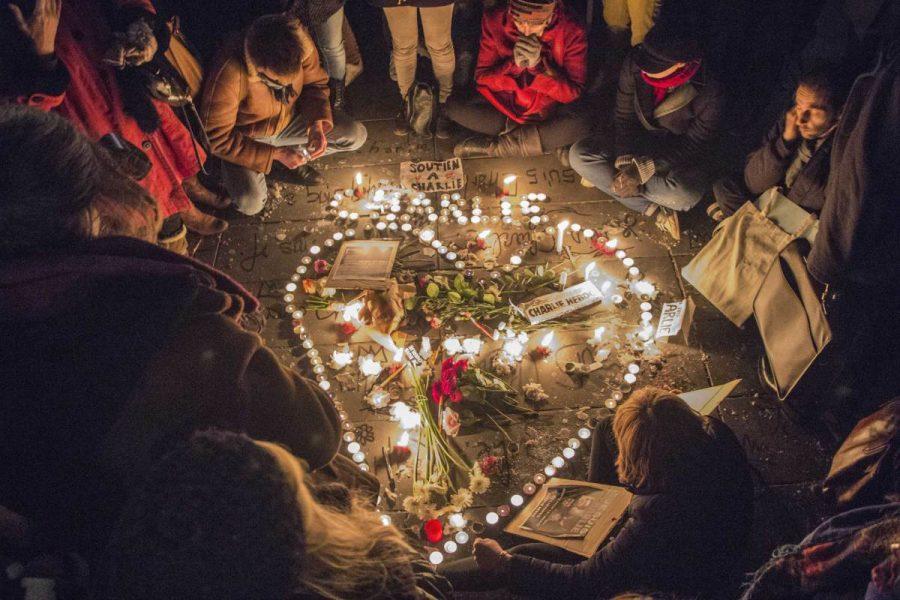The beginning of the year of 2015 took a bloody turn when two gunmen entered the Charlie Hebdo magazine headquarters in Paris and opened fire. This attack took the lives of 12 people: eight journalists, two police officers, a caretaker, and a visitor.
The gunmen, Said and Cherif Kouachi, were born and raised in France and claimed to have avenged the Islamic Prophet Muhammad by attacking the magazine that published cartoons of him.
The caricatures that depicted the Prophet as a satirical figure offended many Muslims around the world. But everyone had a different approach to dealing with such emotions. Many in Chechnya, Afghanistan, Ingushetia, and Yemen took it to the streets, in the protest called “Love for the Prophet Muhammad.” The Kouachi brothers picked up Kalashnikov rifles and dealt with it violently. Many young Muslims, like Lupe Fiasco, took to social media to raise awareness of their religion and the teachings of their Prophet using the hashtag “Muhammad Taught Me.”
Similar to the variety of reactions to the caricatures, there were also many different ways of responding to the attacks on Charlie Hebdo. After the attack, anti-Muslim assaults were on the rise all around France. Some even went as far as throwing grenades at a mosque in the French city of Le Mans.
Others turned to their main tool of communication with the world, social media, with hashtag “Je Suis Charlie,” which means “I am Charlie.” This phrase’s popularity was not limited to the use on social media.
Around 3.7 million people, including world leaders, marched in France, holding signs with the phrase to express their solidarity and to honor the victims. The French Muslims who came out to denounce the actions of Kouachi brothers as not Islamic held signs that read “We are all Muslims.”
Likewise, the President of Muslim Student Association at the University of Massachusetts Boston Monther Alshaibani, 22, condemned the attack. “I think any sane person would condemn those attacks regardless of how they felt about Charlie Hebdo’s works.”
Alshaibani also emphasized the importance of mutual respect by adding, “I don’t necessarily agree with his work, everyone is entitled to their own opinions and beliefs, but at the same time we should all respect each other as well.”
The majority of Islamic figures in the Boston area share the views of Muslims who do not consider the terrorist attacks acceptable in the Islamic religion. Many Muslims look for answers to questions about appropriate Islamic behavior in the life of the Prophet Muhammad.
Thamer Aldabous, 23, who is one of the deliverers of the sermon during the Friday prayers at UMass Boston, briefly talked about the incident in France during the Khutba (sermon). “Looking back at the time of the Prophet Muhammad PBUH [praise be upon him], he was insulted in worse ways. But the reaction of the Prophet was not like how Muslims react today. The Prophet PBUH used to respond in goodness.
“Those who react in that [violent] way, obviously have not read or studied the life of the Prophet.” He continued by bringing a specific example of the insults the Islamic Prophet faced and describing his approaches. “It was mentioned in the Authentic Narrations that there used to be a woman who used to throw trash at the Prophet every time he passed by her house. And one day, he walked by and there was no trash thrown at him. So he thought that she must be sick. So he went to visit her, and she was so shocked by his manners, that she became a Muslim. She followed him.”
When asked about the possible effects of Charlie Hebdo cartoons of the Prophet on the Boston community and the USA, Associate Imam and Chaplain at the Islamic Institute of Boston Safwan Eid, 22, shared that, “I encounter people interested in Islam and converts who found Islam through hearing about the slander of the prophet.”
Muslim Students on Campus Condemn the Attack on Charlie Hebdo
February 1, 2015
A video still showing the Kouachi brothers after they stormed the offices of french satirical newspaper Charlie Hebdo, firing guns and killing almost a dozen people. Photo courtesy of The Daily News.

